INTERNATIONAL RELATIONS
INTERNATIONAL RELATIONS
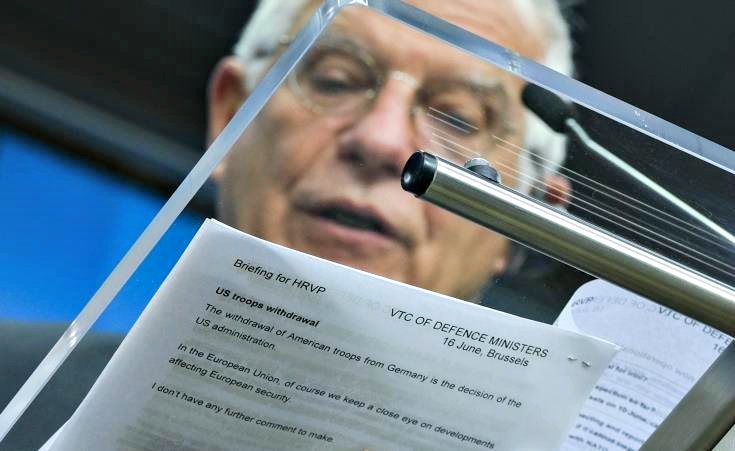
An appeal to the Council of EU Defence Ministers on strengthening Operation “IRINI” for the control of the UN arms embargo on Libya was made by the High Representative Joseph Borrell, who also chaired the meeting.
After the meeting of the EU Defence Ministers, the EU and the Operation referred to the incident of the ship that did not stop for inspection and was escorted by Turkish warships to the UN, which will decide further on the matter.
The High Representative announced that Operation Irini has already stopped 130 ships for inspection for alleged violations of the UN arms embargo and another 29 for smuggling. He noted, however, that the Tanzanian-flagged ship did not respond to the Operation’s questions; something that was done by the Turkish warships escorting it.
“At the end of May, we detected, via a satellite, a suspicious Tanzanian-flagged ship escorted by Turkish warships, which stated that the ship was carrying cargo of medical supplies on behalf of Turkey destined for Libya,” explained Joseph Borrell. “The Operation IRINI ship did what it had to do, namely she contacted the Turkish authorities to confirm this information.”
“The mission has rules of engagement. And the mission is one dedicated to getting information according to those rules. Every time we detect a suspicious vessel, we ask for information; if the information seems satisfactory, there is nothing else we can do. We only act differently if a ship does not respond, only then can we do something more. In the case of the Tanzanian ship, it was the escort of Turkish warships that responded. The Tanzanian ship did not respond, but the Turkish military escort did. When we have a response and we do not find a specific reason according to the rules of the sea, we can do nothing more than transmit this information to the UN. And it is up to the UN to gather this information in order to control the implementation of the arms embargo,” replied the High Representative.
Also read: The “SPETSAI” frigate is monitoring a suspicious ship carrying weapons
The High Representative noted the beneficial exchange among the Ministers on how to strengthen the operational capability of the EU defence and announced that he had called on the K-M to strengthen the Operation with their means and intelligence services. He noted that the Operation was “absolutely neutral” and answered a question, explaining that apparently the 130 ships inspected were not all Turkish.
“Operation IRINI is not against anyone, it is not focused on a specific country that violates the arms embargo in Libya. We are completely neutral. We are using our capabilities only impartially; more than 130 ship inspections have been carried out! Not all of these ships belong to Turkey,” he stressed. “We also carried out air surveillance to transport military aircraft and found that they were transferred to a base near Benghazi. And these were not Turkish aircraft. So we mentioned all this to the United Nations. We are acting according to the rules of these operations, that is, the information reaches the operations center and from there it is reported to the UN, the committee responsible for the arms embargo, which decides how it will react,” Borrel explained.
He clarified that there is no question of NATO’s participation in the operation, but of cooperation with NATO, as was done with Operation “Sofia” in the past. Finally, answering a relevant question, he stated that the issue regarding Turkey’s actions in the Eastern Mediterranean was not raised today.
Source: CNA
Freddy Beleris | Ιn jail until October
The elected mayor of Heimarra and Member of the European Parliament of New Democracy will remain in prison until October…
Ukraine | Satellite images depict destruction of Russian drone base
Ukraine claims that satellite images show the destruction of a Russian warehouse used to launch Iranian-made drones and train cadets.
EU | Accession negotiations with Ukraine and Moldova officially kick off Tuesday
EU Finance Ministers meeting in Luxembourg formally approved the framework for negotiations with the two candidate countries…
EUROSATORY 2024 | Missile Artillery Solutions from MBDA
With such a large number of interested attendees at MBDA’s pavilion at the Eurosatory 2024 Defence exhibition, the stand reminded of an…
KNDS | Showcases full range of LEOPARD battle tanks at EUROSATORY
KNDS continues to expand its technological advantage in the field of main battle tank development, as we have witnessed at the Defence and…
THEON SENSORS | Distinguishing appearance at EUROSATORY 2024 with new range of products
THEON SENSORS attended the International Defence and Security Exhibition EUROSATORY 2024 as an ambassador of Greek innovation…
Ministry of Defence | Organization of Hellenic EDF Info Day
A Conference entitled “EDF Info Day” is organized in the Amphitheater of the National Gallery on Tuesday, July 9 from 09:00 to 17:00.
ALTUS LSA | Participates in EUROSATORY 2024 with KERVEROS in the foreground
The participation of ALTUS LSA in EUROSATORY 2024 is among the Greek participations of operational significance.
Freddy Beleris | Ιn jail until October
The elected mayor of Heimarra and Member of the European Parliament of New Democracy will remain in prison until October…





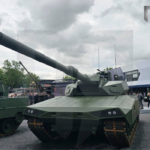



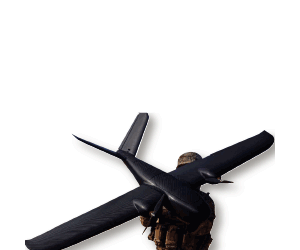

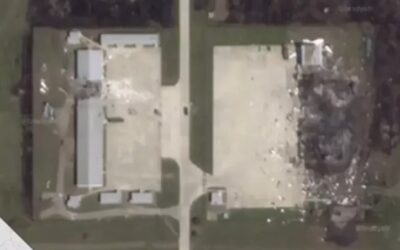


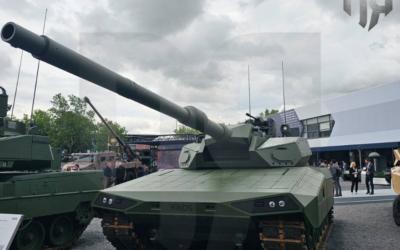


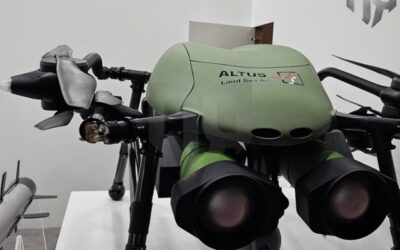
0 Comments